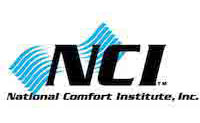Energy managment systems are computer software used in managing and optimization of energy grid systems to achieve higher efficiency. In the utility industry, it is used to manage HVAC and lighting systems across a wide area. This technology achieves its objectives through providing monitoring and metering functions to the building managers to enable them to make informed decisions.
The Use of EMS in Home Energy Management
Management of energy concentrates more on the commercial buildings, but residential homes are beginning to be wary of increasing energy consumption that is costly. Home heating and cooling account for a huge percentage of home utility bills. To best manage energy at home, the HVAC systems must be serviced from time to time. Interval data from the thermostat should be interpreted using the energy managment systems to inform the homeowners accordingly.
Importance of Energy Management Systems
This computer technology aids organizations to save energy through reduction of operational costs. This affects the organizational profitability that translates to energy efficiency. Therefore, management of energy helps governments formulate policies used to manage energy prices, carbon emissions among other global goals towards clean energy. For this reasons, energy managment systems help save the environment as well as reduce over-dependence on non-renewable sources of energy like fossil fuels. At the organizational level, energy management helps cut down energy use, lower risk of price fluctuations and also reduce carbon emissions. Even individual homeowners have targets aimed at reducing energy use. For this reason, identifying the best EMS is crucial for the achievement of this objective.
Best Ways to Manage Energy Using EMS
To manage energy consumption, collect more accurate and reliable data. For this case, choose the interval method over the conventional reading of the meter on a monthly basis. Manage waste in buildings by switching off equipment and gadgets when not in use as well as consider insulation or equipment upgrade. All these energy management strategies are crucial in reducing energy use. Tracking the above steps is possible through the use of energy management systems. They give real time data on a high level of accuracy.
To reduce utility bills in your home, be sure to follow us for more articles that will keep your heating and cooling systems running efficiently.













